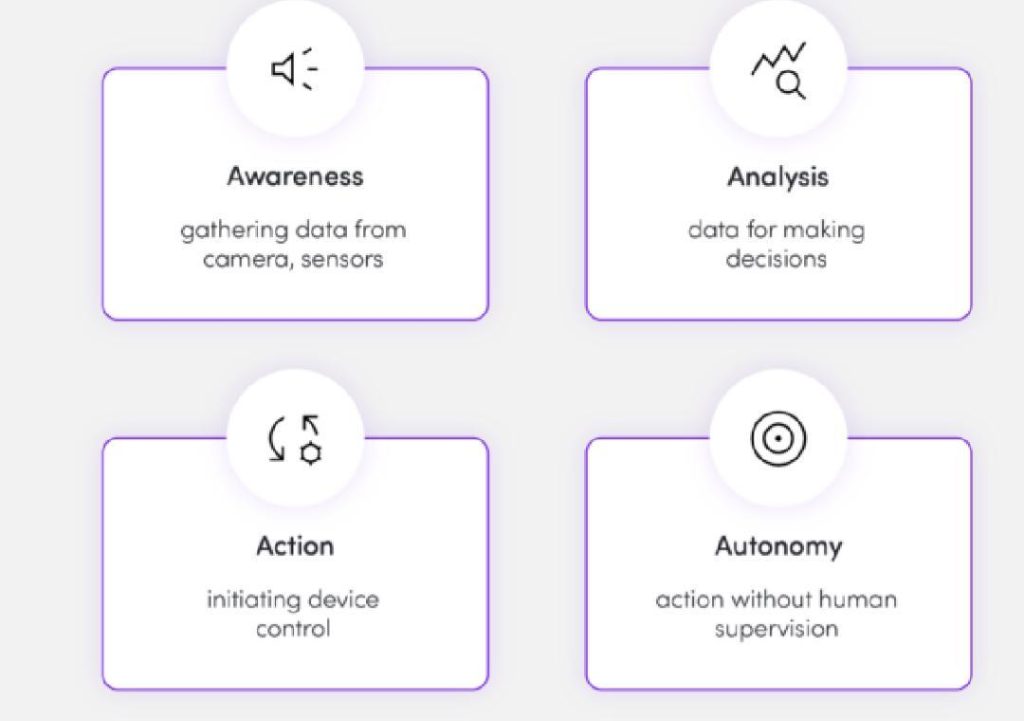
Which AI Agent Suits Your Use Case?
Artificial Intelligence (AI) has revolutionized the way we live and work, offering numerous benefits such as increased efficiency, accuracy, and productivity. AI agents are a type of AI that enables machines to perform tasks autonomously, making decisions and taking actions without human intervention. However, not all AI agents are created equal, and the type of agent you choose can significantly impact the success of your project.
In this blog post, we’ll explore the different types of AI agents, their characteristics, and the use cases they’re best suited for. By understanding the strengths and limitations of each type, you’ll be better equipped to choose the right AI agent for your specific needs.
The Five Types of AI Agents
- Reflex Agents
Reflex agents are the simplest type of AI agent. They act instantly, without any deliberation or planning. They’re designed to respond to a specific set of stimuli or inputs, and their actions are based on their current state. Reflex agents are perfect for tasks that require quick decisions, such as:
- Basic automation: Reflex agents can be used to automate simple tasks, such as sending emails or updating databases.
- Real-time processing: They’re well-suited for tasks that require real-time processing, such as processing sensor data or responding to user input.
- Rule-Based Agents
Rule-based agents follow predefined logic to make decisions. They’re programmed with a set of rules or conditions that determine their actions. Rule-based agents are ideal for tasks that require:
- Precise decision-making: They’re well-suited for tasks that require precise decision-making, such as medical diagnosis or financial analysis.
- Regulatory compliance: Rule-based agents can help ensure regulatory compliance by following predefined rules and guidelines.
- Model-Based Agents
Model-based agents use past context and learning to make decisions. They’re trained on historical data and can adapt to changing conditions. Model-based agents are perfect for tasks that require:
- Learning and adaptation: They’re well-suited for tasks that require learning and adaptation, such as natural language processing or recommender systems.
- Dynamic environments: Model-based agents can handle dynamic environments, such as weather forecasting or traffic management.
- Goal-Driven Agents
Goal-driven agents optimize toward specific outcomes. They’re designed to achieve a specific goal or set of goals, and they’ll adjust their actions accordingly. Goal-driven agents are ideal for tasks that require:
- Optimization: They’re well-suited for tasks that require optimization, such as scheduling or resource allocation.
- Complex decision-making: Goal-driven agents can handle complex decision-making, such as scheduling or planning.
- Utility-Based Agents
Utility-based agents evaluate trade-offs to make the best decision. They’re designed to maximize utility, which is a measure of the desirability of an outcome. Utility-based agents are perfect for tasks that require:
- Complex decision-making: They’re well-suited for tasks that require complex decision-making, such as budgeting or resource allocation.
- Uncertainty: Utility-based agents can handle uncertainty, such as predicting the outcomes of different courses of action.
Choosing the Right AI Agent for Your Use Case
When choosing an AI agent, it’s essential to consider the task complexity. Reflex agents are ideal for quick decisions, while model or utility-based agents offer adaptability for evolving tasks. Here’s a suggested approach to choose the right AI agent for your use case:
- Identify the task complexity: Determine whether the task requires quick decisions, complex decision-making, or adaptability.
- Evaluate the agent’s characteristics: Consider the type of agent, its strengths, and limitations.
- Assess the environment: Consider the dynamic nature of the environment and whether it requires learning and adaptation.
- Define the goals: Clearly define the goals and outcomes you want the AI agent to achieve.
By following this approach, you’ll be able to choose the right AI agent for your specific use case, ensuring that your project is successful and efficient.
Conclusion
AI agents vary in type, and each type has its strengths and limitations. By understanding the different types of AI agents and their characteristics, you’ll be better equipped to choose the right agent for your use case. Whether you need a quick decision-maker, a learning agent, or a utility-based agent, there’s an AI agent that’s perfect for your project.
Source:
https://www.growthjockey.com/blogs/types-of-agents-in-ai






